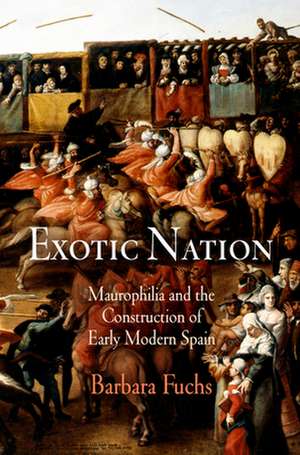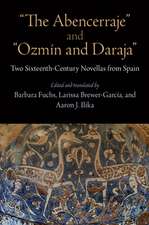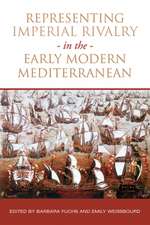Exotic Nation – Maurophilia and the Construction of Early Modern Spain
Autor Barbara Fuchsen Limba Engleză Paperback – 7 aug 2011
Preț: 191.00 lei
Nou
Puncte Express: 287
Preț estimativ în valută:
36.57€ • 38.15$ • 30.65£
36.57€ • 38.15$ • 30.65£
Carte disponibilă
Livrare economică 19 februarie-05 martie
Preluare comenzi: 021 569.72.76
Specificații
ISBN-13: 9780812221732
ISBN-10: 0812221737
Pagini: 208
Dimensiuni: 151 x 227 x 18 mm
Greutate: 0.3 kg
Editura: MT – University of Pennsylvania Press
ISBN-10: 0812221737
Pagini: 208
Dimensiuni: 151 x 227 x 18 mm
Greutate: 0.3 kg
Editura: MT – University of Pennsylvania Press













